For the 2025 school year, there is 1 public charter school serving 281 students in South Columbus Preparatory Academy At German Village School District. This district's average charter testing ranking is 6/10, which is in the top 50% of public charter schools in Ohio.
Public Charter School in South Columbus Preparatory Academy At German Village School District have an average math proficiency score of 12% (versus the Ohio public charter school average of 23%), and reading proficiency score of 37% (versus the 37% statewide average).
Minority enrollment is 88% of the student body (majority Black), which is more than the Ohio public charter school average of 67% (majority Black).
Overview
This School District
This State (OH)
# Schools
1 School
333 Schools
# Students
281 Students
118,927 Students
# Teachers
15 Teachers
5,840 Teachers
Student : Teacher Ratio
19:1
19:1
District Rank
South Columbus Preparatory Academy At German Village School District, which is ranked within the bottom 50% of all 918 school districts in Ohio (based off of combined math and reading proficiency testing data) for the 2021-2022 school year.
Overall District Rank
#743 out of 929 school districts
(Bottom 50%)
(Bottom 50%)
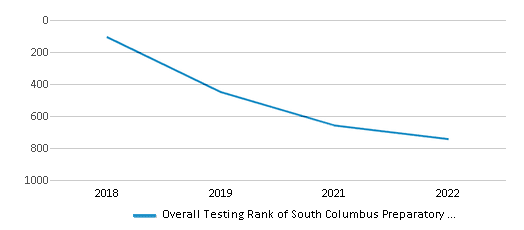
Math Test Scores (% Proficient)
10-14%
52%
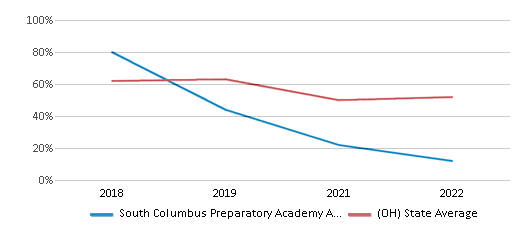
Reading/Language Arts Test Scores (% Proficient)
35-39%
60%
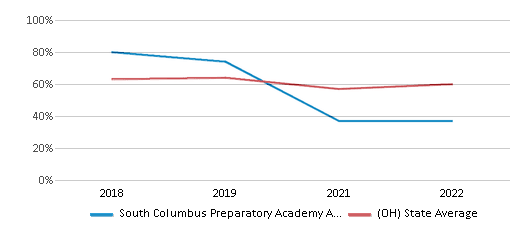
Science Test Scores (% Proficient)
30-39%
63%
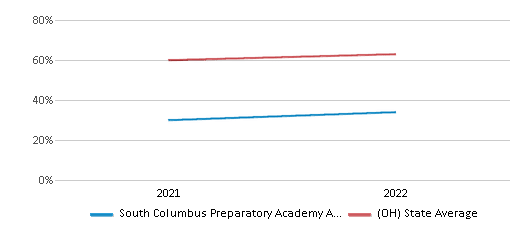
Students by Ethnicity:
Diversity Score
0.39
0.65
# American Indian Students
2 Students
355 Students
% American Indian Students
1%
n/a
# Asian Students
1 Student
1,157 Students
% Asian Students
n/a
1%
# Hispanic Students
6 Students
12,062 Students
% Hispanic Students
2%
10%
# Black Students
216 Students
57,044 Students
% Black Students
77%
48%
# White Students
34 Students
39,781 Students
% White Students
12%
34%
# Hawaiian Students
1 Student
138 Students
% Hawaiian Students
n/a
n/a
# Two or more races Students
21 Students
8,376 Students
% of Two or more races Students
8%
7%
Students by Grade:
# Students in PK Grade:
-
29
# Students in K Grade:
45
10,141
# Students in 1st Grade:
38
8,925
# Students in 2nd Grade:
45
8,910
# Students in 3rd Grade:
32
8,315
# Students in 4th Grade:
35
8,186
# Students in 5th Grade:
16
8,181
# Students in 6th Grade:
31
8,510
# Students in 7th Grade:
17
9,260
# Students in 8th Grade:
22
8,944
# Students in 9th Grade:
-
9,343
# Students in 10th Grade:
-
9,390
# Students in 11th Grade:
-
11,270
# Students in 12th Grade:
-
9,523
# Ungraded Students:
-
-
District Revenue and Spending
The revenue/student of $9,544 in this school district is less than the state median of $17,287. The school district revenue/student has declined by 26% over four school years.
The school district's spending/student of $9,413 is less than the state median of $17,235. The school district spending/student has declined by 26% over four school years.
Total Revenue
$3 MM
$28,879 MM
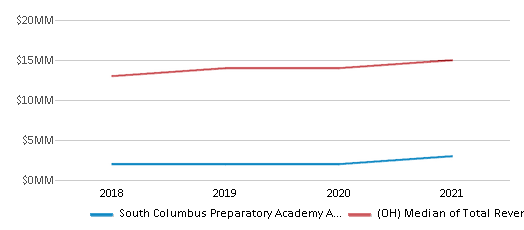
Spending
$3 MM
$28,792 MM
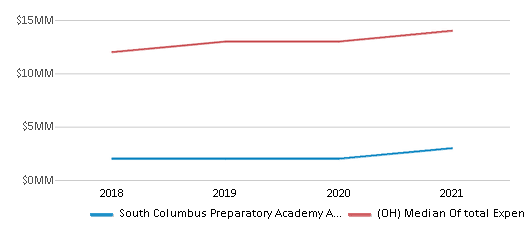
Revenue / Student
$9,544
$17,287
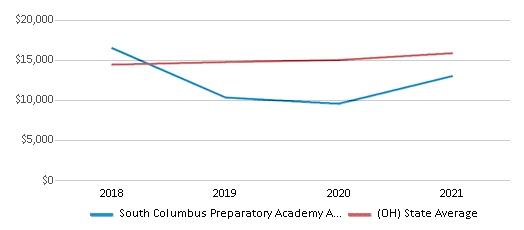
Spending / Student
$9,413
$17,235
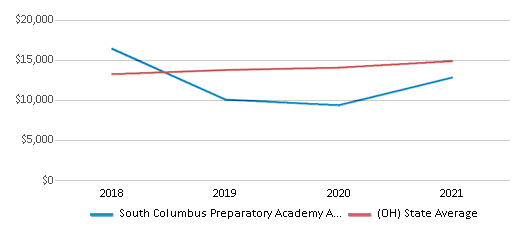
Best South Columbus Preparatory Academy At German Village School District Public Charter Schools (2025)
School
(Math and Reading Proficiency)
(Math and Reading Proficiency)
Location
Grades
Students
Rank: #11.
South Columbus Preparatory Academy At German Village
Charter School
(Math: 10-14% | Reading: 35-39%)
Rank:
Rank:
2/
Bottom 50%10
387 E Beck St
Columbus, OH 43206
(614) 669-6301
Columbus, OH 43206
(614) 669-6301
Grades: K-8
| 281 students
Recent Articles

Year-Round Or Traditional Schedule?
Which is more appropriate for your child? A year-round attendance schedule or traditional schedule? We look at the pros and cons.

Why You Should Encourage Your Child to Join a Sports Team
Participating in team sports has a great many benefits for children, there is no doubt. In this article you will learn what those benefits are.

White Students are Now the Minority in U.S. Public Schools
Increasing birth rates among immigrant families from Asia and Central and South America, combined with lower birth rates among white families, means that for the first time in history, public school students in the United States are majority-minority. This shift in demographics poses difficulties for schools as they work to accommodate children of varying language abilities and socio-economic backgrounds.





